


Below is a sample of the emails you can expect to receive when signed up to tghn.
|
Dear Colleague, You are invited to attend the next PHEPREN seminar on Monday 14 December 1pm-2.15pm GMT (UK).?To register visit:?https://zoom.us/webinar/register/3716070011201/WN_Z_9lsPSrQBiNgIRwMrjekQ? Effective COVID-19 vaccine(s)? Ethical implications for vaccine research in 2021 The development of a safe and effective COVID-19 vaccine will represent a significant triumph. Yet, perhaps counter-intuitively, this could raise rather complex ethical questions and challenges for other COVID-19 vaccine clinical trials. For instance, if a vaccine were to be authorized for emergency use, would it be unethical for vaccine trials to continue to employ placebo control arms? If not, should trial participants be discouraged from withdrawing from trials and accessing authorized vaccines? What methodological approaches should be used to generate evidence on COVID-19 vaccines after interim results for vaccines are available and vaccines are authorized or approved for use outside of clinical trials? This seminar will explore the ethical implications of promising COVID-19 vaccine candidates for vaccine research in 2021.? Chair:?Ross Upshur, University of Toronto, Canada? Speakers:
With best wishes, Adrienne @EpidemicsEthics ? 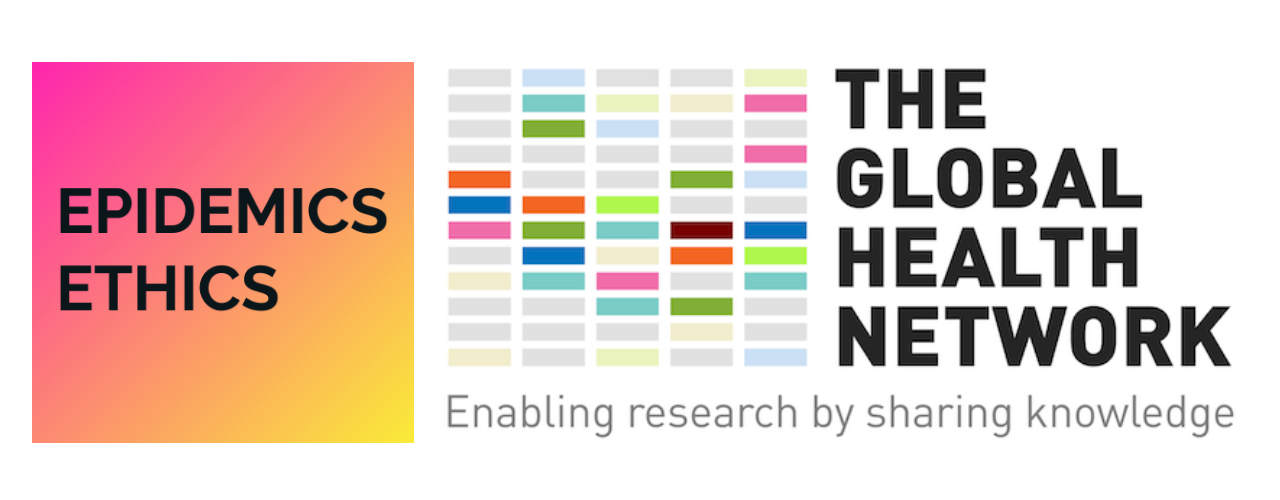
?
|

.....................................................
COVID-19 and stroke:
What are the pressing challenges?
Wednesday 25th November 2020
16:00-18:00 Brazil (GMT-3)
Register via Zoom: https://zoom.us/webinar/register/WN_65FlPpC5RZCNGTUzSWViAg
This workshop is brought together by members of the WHO''s NeuroCOVID Forum (Dr Alessandro Padovani and Dr Lucia Brito) and Fiocruz (Dr Cristiane Bresani) and The Global Health Network.
This event will be an opportunity to discuss challenges and ideas to investigate cerebrovascular manifestations potentially related to COVID-19. The panellists will share their experience in the field, which includes a multicentre case-control study on the association between stroke and SARS-CoV-2 infection, run by Fiocruz in Brazil. If you are interested in clinical research, neurology, and COVID-19, join us to learn more and give your contribution.
More information can be found on the dedicated Hub page:
https://rede.tghn.org/workshops2020/covid-19-and-stroke-pressing-challenges/
Registration
To register for the workshop on Zoom, please follow this link: https://zoom.us/webinar/register/WN_65FlPpC5RZCNGTUzSWViAg
Following registration you will receive an email from Zoom / info@theglobalhealthnetwork.org – this will include your unique meeting joining link. Please do not share this link with anyone.
The email will be re-issued 1 day before the workshop begins. Please check your junk mail if you are worried you have not received this.
Get in touch
If you have any questions please reply to this email or contact info@theglobalhealthnetwork.org
--

Centre for Tropical Medicine & Global Health | University of Oxford
New Richards Building, Nuffield Department of Medicine |
Old Road Campus | Roosevelt Drive | Oxford, OX3 7LG | UK
bonny@globalhealthtrials.org
The Global Health Network | www.theglobalhealthnetwork.org | @info_TGHN
Enabling evidence by sharing knowledge, methods and tools
Dear member of the Fiocruz Hub at TGHN,
Allow me to address you with a very special request.
The COVID-19 pandemic demands increasingly rapid results from researchers that can contribute to an effective response to the new coronavirus. In this regard,
the Global Health Network has created a Hub to gather quality information that can support research on this issue.
This HUB has regional or language-specific areas, such as
Latin America and
Portuguese-speaking countries, where we gather resources to support research and decision making.
The resources in English are widely shared, while those in Spanish and Portuguese are not as well known and disseminated.
In order to gather as many resources as possible in these languages, we are asking for your support.
Please answer this short survey and share it with your peers.
Choose your preferred language below.
|
COVID-19: Formulario de intercambio de recursos para investigaci?n
ESPA?OL |
COVID-19: Formul?rio para compartilhamento de recursos para pesquisa
PORTUGU?S |
COVID-19: Resource Sharing Form
ENGLISH |
COVID-19: Formulaire de partage de ressources
FRAN?AIS |
Let''s democratize that knowledge!
IMPORTANT NOTE: The resources shared here must be in the public domain and will be published on the TGHN Hub on the new coronavirus.
Thank you and best regards,

Fl?via Bueno
Coordenadora do Hub Fiocruz - The Global Health Network
https://fiocruz.tghn.org/
Dear Colleague,
Register here for the next COVID-Neuro Webinar, featuring Dr C?cile Delorme from Piti?-Salp?tri?re Hospital and Professor Gerome Breen from King''s College London:
Study results from COPING and CoCo-Neuro (27th October 2020, 13:00 GMT/UTC+0)
(Dial in details will be circulated following your registration)
Prof Tom Solomon - Chair
Prof Tom Solomon is Director of the National Institute for Health Research Health Protection Research Unit in Emerging and Zoonotic Infections, Head of the Brain Infections Group, Professor of Neurological
Science, and Honorary Consultant Neurologist, Walton Centre NHS Foundation Trust and Royal Liverpool University Hospital.
Dr C?cile Delorme
Dr C?cile Delorme is a neurology physician in the Department of Neurology of the Piti?-Salp?tri?re Hospital in Paris. She received her neurology MD degree from Paris XI University in 2011 and completed a residency in neurology
in several hospitals in Paris, followed by a fellowship in the Department of Neurology. She specialized in the field of Movement Disorders, with a particular interest in Deep brain stimulation. During the Covid-19 pandemic in Paris, she was in charge of patients
with Covid-19 and neurological symptoms in the hospital. Together with Professor Jean-Yves Delattre and Professor Jean-Christophe Corvol, she led the CoCo-Neurosciences study, an exhaustive cohort of Covid-19 patients with neurological or psychiatric manifestations
seen in the Piti?-Salp?tri?re and associated hospitals.
Professor Gerome Breen
Prof Gerome Breen is Professor of Psychiatric Genetics in the Social, Genetic and Developmental Psychiatry Centre, at the Institute of Psychiatry,
Psychology and Neuroscience at King's College London. He is a theme lead (unit leader) at the NIHR Biomedical Research Centre at the South London and Maudsley NHS Trust and leads the mental health arm of the overall NIHR BioResource, which aims to recruit
100,000 people with experience of a mental health disorder to a recontactable biobank. Within this he leads the Genetic Links to Anxiety and Depression (GLAD; n>24,000). His research spans both molecular and bioinformatics studies of psychiatric and neurological
disorders and neuropsychiatric/neuropsychology traits. He has published >200 articles on mood disorders, addictions, schizophrenia and eating disorders but has been working throughout the pandemic on the psychiatric and neurological consequences of COVID-19
and the societal response to it in the ~30,000 person COVID-19 Psychiatry and Neurological Genetics (COPING) study in the NIHR BioResource.
Additional COVID-19 Neuro resources:
With thanks,
Tom Solomon
(PS: You are receiving this invitation because you signed up for the Brain Infections Global hub and/or the COVID-Neuro Network. We are hosting our next webinar on 27th October at 13:00 pm GMT/UTC+0 (London))
-----------------------
Professor Tom Solomon, FRCP PhD
Chair, Neurological Science and Director, NIHR Health Protection Research Unit in Emerging and Zoonotic Infections, University of Liverpool.
Hon Consultant Neurologist, Walton Centre NHS Foundation Trust.
Assistant: Clare Fotheringham; Email clare.fotheringham@liverpool.ac.uk;
Tel +44 151 795 7577
Zoom: https://us02web.zoom.us/j/5640427808
@RunningMadProf
----------------
Dear Colleague,
Register here for the next COVID-Neuro Webinar, featuring Dr Sherry H-Y. Chou from the University of Pittsburgh School of Medicine, Prof Ettore Beghi from the Mario Negri Institute for Pharmacological Research, and Dr Suzannah Lant, University of Liverpool:
Pooling global data on NeuroCOVID (11th December 2020, 13:00 GMT/UTC+0)
(Dial in details will be circulated following your registration)
Prof Tom Solomon - Chair
Prof Tom Solomon is Director of the National Institute for Health Research Health Protection Research Unit in Emerging and Zoonotic Infections, Head of the Brain Infections Group, Professor of Neurological
Science, and Honorary Consultant Neurologist, Walton Centre NHS Foundation Trust and Royal Liverpool University Hospital.
Dr Sherry H-Y. Chou is a physician-scientist with expertise in clinical neurology, neurocritical care and vascular neurology and award-winning mentor. Dr. Chou's research program focuses on the role of inflammation and
immune response in vascular brain injuries and biomarker discovery. Dr. Chou founded and leads the large Global Consortium Study on Neurological Dysfunction in COVID 19 (GCS-NeuroCOVID) and serves as an invited member to the World Health Organization forum
on neurological impacts of COVID 19. Nationally, Dr. Chou serves on the Board of Directors and as research subcommittee chair of the Neurocritical Care Society.
Dr Suzannah Lant has a background in clinical and laboratory studies, investigating neurological disease. She has co-ordinated a multicentre case-control study examining the association between infection with arthropod-borne viruses and the development
of neurological disease in Brazil. Currently, she is co-ordinating a meta-analysis of individual patient data from studies into COVID-19 and neurological disease, which is being conducted with over 100 international collaborators.
The literature digest from @Neuropsychcovid for this month will be presented by JNNP Blogger Matt Butler.
*** Future webinars ***
January 12 2021 | 1-2pm (UK) | Register now
February 17 2021 | 1-2pm (UK) | Register now
March 16 2021 | 1-2pm (UK) | Register now
April 20 2021 | 1-2pm (UK) | Register now
Additional COVID-19 Neuro resources:
-----------------------
Professor Tom Solomon, FRCP PhD
Chair, Neurological Science and Director, NIHR Health Protection Research Unit in Emerging and Zoonotic Infections, University of Liverpool.
Hon Consultant Neurologist, Walton Centre NHS Foundation Trust.
Assistant: Clare Fotheringham; Email clare.fotheringham@liverpool.ac.uk;
Tel +44 151 795 7577
Zoom: https://us02web.zoom.us/j/5640427808
@RunningMadProf
----------------
You are receiving this communication as someone who has previously consented to receive event related emails from Professor Tom Solomon. If this is not the case, or you wish to stop receiving these emails, please email clare.fotheringham@liverpool.ac.uk at any time. We are committed to maintaining your privacy and you can view our data protection policy
Access the NEUROWEBINAR Home Page and Archives: http://listserv.liv.ac.uk/cgi-bin/wa?A0=NEUROWEBINAR
Unsubscribe from the NEUROWEBINAR List: http://listserv.liv.ac.uk/cgi-bin/wa?SUBED1=NEUROWEBINAR&A=1
########################################################################
Fl?via Bueno
Coordenadora do Hub Fiocruz - The Global Health Network
https://fiocruz.tghn.org/
Dear Colleague,
Register here for the next COVID-Neuro Webinar, featuring Prof Alla Guekht from the Moscow Research and Clinical Center for Neuropsychiatry and Prof Tom?s Segura from the Complejo Hospitalario Universitario de Albacete in Spain:
A Russian perspective on COVID-neuro and data from the ALBACOVID registry (12th January 2021, 13:00 GMT/UTC+0)
(Dial in details will be circulated following your registration)
Prof Tom Solomon - Chair
Prof Tom Solomon is Director of the National Institute for Health Research Health Protection Research Unit in Emerging and Zoonotic Infections, Head of the Brain Infections Group, Professor of Neurological
Science, and Honorary Consultant Neurologist, Walton Centre NHS Foundation Trust and Royal Liverpool University Hospital.
Prof Alla Guekht is the Director of the Moscow Research and Clinical Center for Neuropsychiatry, professor of Neurology at the Russian National Research Medical University, supervising the neurological clinic in the multidisciplinary hospital in Moscow. Her main areas of research are epilepsy, post-stroke cognitive impairment, restoration after stroke, and neuroepidemiology.
Prof. Dr. Tom?s Segura is the Head of the Neurology Department, Complejo Hospitalario Universitario de Albacete, Spain and one of the main co-investigators of the ALBACOVID study.
The literature digest from @Neuropsychcovid for this month will be presented by JNNP Blogger Jia Song and the WHO Regional Clinical Exchange will introduce their new virtual case discussions.
*** Future webinars ***
February 17 2021 | 1-2pm (UK) | Register now
March 16 2021 | 1-2pm (UK) | Register now
April 20 2021 | 1-2pm (UK) | Register now
Additional COVID-19 Neuro resources:
With thanks,
Tom Solomon
(PS: You are receiving this invitation because you signed up for the Brain Infections Global hub and/or the COVID-Neuro Network. We are hosting our next webinar on 12th January at 13:00 pm GMT/UTC+0 (London))
-----------------------
Professor Tom Solomon, FRCP PhD
Chair, Neurological Science and Director, NIHR Health Protection Research Unit in Emerging and Zoonotic Infections, University of Liverpool.
Hon Consultant Neurologist, Walton Centre NHS Foundation Trust.
Assistant: Clare Fotheringham; Email clare.fotheringham@liverpool.ac.uk;
Tel +44 151 795 7577
Zoom: https://us02web.zoom.us/j/5640427808
@RunningMadProf
----------------
You are receiving this communication as someone who has previously consented to receive event related emails from Professor Tom Solomon. If this is not the case, or you wish to stop receiving these emails, please email clare.fotheringham@liverpool.ac.uk at any time. We are committed to maintaining your privacy and you can view our data protection policy
Access the NEUROWEBINAR Home Page and Archives: http://listserv.liv.ac.uk/cgi-bin/wa?A0=NEUROWEBINAR
Unsubscribe from the NEUROWEBINAR List: http://listserv.liv.ac.uk/cgi-bin/wa?SUBED1=NEUROWEBINAR&A=1
########################################################################
COVID-19 and stroke:
What are the pressing challenges?
Wednesday 25th November 2020
16:00-18:00 Brazil (GMT-3)
Register via Zoom:
https://zoom.us/webinar/register/WN_65FlPpC5RZCNGTUzSWViAg
This workshop is brought together by members of the WHO''s NeuroCOVID Forum (Dr Alessandro Padovani and Dr
Lucia Brito) and Fiocruz (Dr Cristiane Bresani) and The Global Health Network.
This event will be an opportunity to discuss challenges and ideas to investigate cerebrovascular manifestations potentially related to COVID-19.
The panellists will share their experience in the field, which includes a multicentre case-control study on the association between stroke and SARS-CoV-2 infection, run by Fiocruz in Brazil. If you are interested in clinical research, neurology, and COVID-19,
join us to learn more and give your contribution.
More information can be found on the dedicated Hub page:
https://rede.tghn.org/workshops2020/covid-19-and-stroke-pressing-challenges/
Registration
To register for the workshop on Zoom, please follow this link: https://zoom.us/webinar/register/WN_65FlPpC5RZCNGTUzSWViAg
|
|
Webinar Registration - Zoom
zoom.us
This is a webinar led by Members of the WHO''S NeuroCOVID Forum (Dr Alessandro Padovani and Dr Lucia Brito) and Fiocruz (Dr Cristiane Bresani) to discuss the challenges and ideas to investigate cerebrovascular manifestations potentially related to COVID-19.
The panellists will share their experience in the field, which includes a multicentre case-control study on the association between stroke and SARS-CoV-2 infection, run by Fiocruz in Brazil. This event will be a forum open to all who are interested in clinical
research, neurology and COVID-19. Chair: Dr Felipe Von Glehn - University of Bras?lia, Brazil Speakers: Dr Alessandro Padovani - University of Brescia, Italy WHONeuroCOVID Working Group Title: A PANORAMA OF THE PROBLEM Dr Lucia Brito - Minist?rio da Sa?de,
Brazil WHONeuroCOVID Working Group & Dr Cristiane Bresani - Fiocruz, Pernambuco, Brazil Title: HOW WE ARE FACING IT IN BRAZIL
|
|
Following registration you will receive an email from Zoom
/ info@theglobalhealthnetwork.org -
this will include your unique meeting joining link. Please do not share this link with anyone.
The email will be re-issued 1 day before the workshop begins.
Please check your junk mail if you are worried you have not received this.
Get in touch
If you have any questions please reply to this email or contact info@theglobalhealthnetwork.org
--

Centre for Tropical Medicine & Global Health | University of Oxford
New Richards Building, Nuffield Department of Medicine |
Old Road Campus | Roosevelt Drive | Oxford, OX3 7LG | UK
bonny@globalhealthtrials.org
The Global Health Network
| www.theglobalhealthnetwork.org |
@info_TGHN
Enabling evidence by sharing knowledge, methods and tools
Access the NEUROWEBINAR Home Page and Archives: http://listserv.liv.ac.uk/cgi-bin/wa?A0=NEUROWEBINAR
Unsubscribe from the NEUROWEBINAR List: http://listserv.liv.ac.uk/cgi-bin/wa?SUBED1=NEUROWEBINAR&A=1
########################################################################
Dear member of the
FIOCRUZ hub,
I am writing with exciting news, on behalf of the
TGHN
COVID-19 Ethics and Community Engagement
Working
Groups
coordination team.
We would like to warmly invite you to participate in
the following closed-group workshop:
Ethics review preparedness during
COVID-19: challenges and lessons learned.
A surge in research activities focusing on Novel COVID-19 has left the ethics review bodies
overwhelmed, working in difficult situations and facing the challenge of reviewing the studies with limited evidence of the safety and efficacy of interventions proposed. In countries with decentralized and underdeveloped ethical review systems, the review
process, conducted by diverse ethics review bodies across different regions, remains variable and inconsistent, resulting in inefficiency and duplication of efforts.
This workshop aims
to examine the ethics review process, identifying the variations and challenges that present. This session seeks to provide an opportunity for ethics review bodies or institutional review boards to share and discuss the problems and potential solutions afforded
by experience so far, in an effort to ensure a more coordinated and efficient review system.
This 2-day workshop will be hosted
next week across the following days:
Tuesday 10 November
Friday 13 November
TIME:11am
to 14:00 (UK TIME)
The programme has been carefully designed to afford as much opportunity for participant interaction
and networking, and to build on the discussions from Day 1, so therefore please aim to attend both sessions. For more information and details of the programme, please see the attached agenda and visit
the
hub page.
To secure a place, please complete your
Zoom
registration
as soon as possible and we will contact you with further details soon,
including a calendar invitation to confirm your place at the workshop.
This event is
by invitation only and we are limiting numbers to maximise the value of the workshop and provide the best experience for all. Therefore, if you are unable to attend please do let us know as soon as possible so we can offer the space to another
participant.
Best wishes

Fl?via Bueno
Coordenadora do Hub Fiocruz - The Global Health Network
https://fiocruz.tghn.org/

.....................................................
COVID-19 and stroke:
What are the pressing challenges?
Wednesday 25th November 2020
16:00-18:00 Brazil (GMT-3)
Register via Zoom:
https://zoom.us/webinar/register/WN_65FlPpC5RZCNGTUzSWViAg
This workshop is brought together by members of the WHO''s NeuroCOVID Forum (Dr Alessandro Padovani and Dr Lucia Brito) and Fiocruz (Dr Cristiane
Bresani) and The Global Health Network.
This event will be an opportunity to discuss challenges and ideas to investigate cerebrovascular manifestations potentially related
to COVID-19. The panellists will share their experience in the field, which includes a multicentre case-control study on the association between stroke and SARS-CoV-2 infection, run by Fiocruz in Brazil. If you are interested in clinical research, neurology,
and COVID-19, join us to learn more and give your contribution.
More information can be found on the dedicated Hub page:
https://rede.tghn.org/workshops2020/covid-19-and-stroke-pressing-challenges/
Registration
To register for the workshop on Zoom, please follow this link: https://zoom.us/webinar/register/WN_65FlPpC5RZCNGTUzSWViAg
Following registration you will receive an email from Zoom / info@theglobalhealthnetwork.org –
this will include your unique meeting joining link. Please do not share this link with anyone.
The email will be re-issued 1 day before the workshop begins. Please check your junk mail if you
are worried you have not received this.
Get in touch
If you have any questions please reply to this email or contact info@theglobalhealthnetwork.org
--

Centre for Tropical Medicine & Global Health | University of Oxford
New Richards Building, Nuffield Department of Medicine |
Old Road Campus | Roosevelt Drive | Oxford, OX3 7LG | UK
bonny@globalhealthtrials.org
The Global Health Network
| www.theglobalhealthnetwork.org |
@info_TGHN
Enabling evidence by sharing knowledge, methods and tools
Dear Colleague,
Register here for the next COVID-Neuro Webinar, featuring Prof Priscilla Rupali & Prof Ajith Sivadasan from the Christian Medical College, Vellore and Dr Michael Zandi from University College London:
Neuro COVID-19 in India and encephalitis lethargica (5th November 2020, 13:00 GMT/UTC+0)
(Dial in details will be circulated following your registration)
Prof Tom Solomon - Chair
Prof Tom Solomon is Director of the National Institute for Health Research Health Protection Research Unit in Emerging and Zoonotic Infections, Head of the Brain Infections Group, Professor of Neurological
Science, and Honorary Consultant Neurologist, Walton Centre NHS Foundation Trust and Royal Liverpool University Hospital.
Prof Priscilla Rupali is Professor of Infectious Diseases at the Christian Medical College (CMC), Vellore, India. As Deputy Chair of Infection Control, she has played a central role in the COVID-19 pandemic response. Her main areas of expertise include HIV, brain infections, transplant infections, antimicrobial stewardship, and training. She has conducted hospital-based clinical and capacity-building research for over 20 years with numerous national and international organisations.
Prof Ajith Sivadasan is a clinical and academic neurologist at CMC. He focuses on Neuromuscular Disorders, Autoimmune Neurology, Neurocritical Care, Clinical Neurophysiology,
Sleep Disorders, and neurological complications/manifestations of infectious diseases. He has been working on CMC's COVID-19 wards and on multiple COVID-19 neurological disease projects.
Profs Rupali and Sivadasan are local co-leads of the COVID-Neuro Global study of COVID-19 neurological disease, identifying risk factors for new acute-onset neurological disease in patients with COVID-19.
Dr Michael Zandi PhD FRCP is Consultant Neurologist at the National Hospital for Neurology and Neurosurgery, Queen Square and UCLH, London. He is Honorary Associate Professor in the University College London Queen Square
Institute of Neurology Department of Neuromuscular Diseases. He runs an encephalitis and neuroimmunology clinic and co-chairs the weekly encephalitis multidisciplinary meeting at the National Hospital.
The literature digest from @Neuropsychcovid for this month will be presented by JNNP Blogger Jamie Badenoch.
Additional COVID-19 Neuro resources:
-----------------------
Professor Tom Solomon, FRCP PhD
Chair, Neurological Science and Director, NIHR Health Protection Research Unit in Emerging and Zoonotic Infections, University of Liverpool.
Hon Consultant Neurologist, Walton Centre NHS Foundation Trust.
Assistant: Clare Fotheringham; Email clare.fotheringham@liverpool.ac.uk; Tel +44 151 795 7577
Zoom: https://us02web.zoom.us/j/5640427808
@RunningMadProf
----------------
Dear Colleague,
Register here for the next COVID-Neuro Webinar, featuring Dr James Sejvar, from US CDC, who has worked on everything from Litchi in India, to West Nile virus in USA, plus Dr Lucette Cysique and Professor Bruce J. Brew:
Neuropsychiatric and neurocognitive aspects in Australia and America
(Dial in details will be circulated following your registration)
Prof Tom Solomon - Chair
Prof Tom Solomon is Director of the National Institute for Health Research Health Protection Research Unit in Emerging and Zoonotic Infections, Head of
the Brain Infections Group, Professor of Neurological Science, and Honorary Consultant Neurologist, Walton Centre NHS Foundation Trust and Royal Liverpool University Hospital.
Dr James J. Sejvar
Dr Sejvar is a neurologist and epidemiologist at the U.S. Centers for Disease Control and Prevention (CDC). After completing undergraduate studies at Case Western Reserve University, he received his MD from Dartmouth Medical School in 1996, internal medicine
training at Pittsburgh's Mercy Medical Center, and completed a residency in neurology at the Mayo Clinic. He joined CDC in 2000, and is currently based at the Division of High-Consequence Pathogens and Pathology of the National Center for Emerging and Zoonotic
Infectious Diseases. His research interests focus on the epidemiology, clinical manifestations and outcome of infections of the central nervous system. He has been has been working on COVID-19 since early January when the first reports of illness were announced
in China.
Dr Lucette Cysique
Dr Lucette Cysique is a neuropsychologist, specialist in brain imaging and Senior Lecturer at the University of New South Wales (UNSW) Sydney. Her research interests are conditions and factors that are relevant to the global HIV epidemic such as the development
of cross-culturally valid tools and methods to assess cognitive function, mental health and the effects of alcohol on the brain.
Prof Bruce J. Brew
Prof Bruce J. Brew is a Consultant Physician and Neurologist. He is a Professor of Medicine (Neurology) at the University of New South Wales (UNSW) Sydney and a Professor of Medicine at the University of Notre Dame Sydney. He is head of the Neurosciences Program
and Peter Duncan Neurosciences Unit at the St Vincent's Centre for Applied Medical Research, and the President of the International Society for Neurovirology. His main research interest is HIV related dementia and the pathogenesis in terms of neurotropic viruses
and the host response in particular excitotoxins, and other neurotoxins produced by the kynurenine pathway.
Additional COVID-19 Neuro resources:
With thanks,
Tom Solomon
(PS: You are receiving this invitation because you signed up for the Brain Infections Global hub and/or the COVID-Neuro Network. We are hosting our next webinar on 20th August at 13:00 pm GMT+1 (London). )
-----------------------
Professor Tom Solomon, FRCP PhD
Chair, Neurological Science and Director, NIHR Health Protection Research Unit in Emerging and Zoonotic Infections, University of Liverpool.
Hon Consultant Neurologist, Walton Centre NHS Foundation Trust.
Assistant: Clare Fotheringham; Email clare.fotheringham@liverpool.ac.uk; Tel +44 151 795 7577
Zoom: https://us02web.zoom.us/j/5640427808
@RunningMadProf
----------------
Dear Colleague,
On behalf of the University of Liverpool Brain Infections Group I would like to invite you to complete a short survey aimed at understanding the use of our outputs and their impacts. As someone who is likely to have some familiarity with our work, we would very much appreciate your input. The survey is open to anyone working in the healthcare/medical professions. The survey will take 5 mins to complete. Please access the survey by clicking on the below link. The survey is anonymous and hosted by Jisc.
https://liverpool.onlinesurveys.ac.uk/university-of-liverpool-brain-infections-group-survey
Thank you in advance.
With kind regards,
Professor Tom Solomon
-----------------------
Professor Tom Solomon, FRCP PhD
- Chair, Neurological Science
- Director, NIHR Health Protection Research Unit in Emerging and Zoonotic Infections
- Associate Pro-Vice-Chancellor for Infrastructure and Environment, Faculty of Health and Life Sciences, University of Liverpool
- Honorary Consultant Neurologist, Walton Centre NHS Foundation Trust.
Catch up on the latest Scouse Science Podcast on Apple Podcasts or on Google Podcasts
@RunningMadProf
?  ? Dear
Colleague, The WHO Health Ethics and Governance Unit invites proposals which address the ethics of COVID-19 public health preparedness and response. (Please note that proposals that look beyond COVID-19 to focus on preparedness and response and research in emergencies more generally are also acceptable). This call for proposals has been issued to support both the work of the Unit and?the Public Health Emergency Preparedness and Response Ethics Network (PHEPREN). Research proposals
may address any significant ethical aspects of public health preparedness and
response to COVID-19. Themes of interest to WHO and PHEPREN include:?
Proposals are welcome for a range of activities including systematic reviews of relevant literature, theoretical and conceptual analyses, development of capacity and training resources etc.?Collaborative proposals between high income and low and middle-income countries (LMICs) or between LMICs are particularly welcome. The maximum amount of funding available is?up to?US$ 25,000. The proposed activities will be implemented across four to five months and must end by 31 March 2021. ?
For more details and how to apply visit: Call for proposals: The Ethics of Public Health Emergency Preparedness and Response The?deadline for submissions is 26 October 2020 17.00 CEST.? ? Best wishes, Adrienne on behalf of PHEPREN ?
All feedback and suggestions are welcome, to get in touch please contact:?epidemicsethics@theglobalhealthnetwork.org.? You are receiving this message because you have registered as a member of PHEPREN, you opted to receive updates when you registered for an Epidemics Ethics seminar and/or you have registered on?The Global Health Network website?to receive updates on Epidemics?Ethics. To unsubscribe from future communications, click?here.? ? PHEPREN and its initiative Epidemics Ethics?are supported by The Global Health Network. Read our Privacy Policy?here.
|
Pesquisa sobre Sa?de Global Em Foco -?Pr?ximas Palestra: Compreendendo as dimens?es de g?nero da COVID-19
Research In Focus Lecture -?Understanding the gendered dimensions of COVID-19: Experiences from Brazil, Canada, and the United Kingdom
Friday, 31?July 16:00 GMT+1 (London) / 12:00 GMT - 3 (Brasil)
Inscreva se / Register here
As pandemias, incluindo a COVID-19, n?o s?o neutras em termos de g?nero.
Pandemics, including Covid-19 are not gender neutral.
Voc? j? pensou como essa pandemia est? afetando todos os
g?neros de foram diferente??As evid?ncias mostram que a pandemia da
COVID-19 est? afetando deformas diferentes os homens, mulheres, e pessoas de
outros g?neros - tanto em termos de efeitos prim?rios imediatos quanto de
efeitos secund?rios,?mais duradouros. Este webinar ir? discutir as
dimens?es de g?nero da COVID-19 em tr?s contextos de pa?s, com base nas
evid?ncias de dois projetos?sobre g?nero COVID que trabalham
transversalmente em nove contextos.?Esta palestra est? sendo organizada em
parceria com a?Fiocruz.
O webinar ser? conduzido em ingl?s, mas a grava??o contar? com legendas em
portugu?s.?
Have you ever thought about how this pandemic is affecting all genders differently??Evidence shows that the current COVID-19 pandemic is differentially affecting men, women, and people of other genders - both in terms of immediate primary effects and more long term secondary effects. Join Denise Nacif Pimenta, Clare Wenham, Julia Smith and Rosemary Morgan to discuss the??gendered dimensions of COVID-19 in three country contexts, drawing on evidence from two gender and COVID projects working across nine contexts.?This lecture is hosted in partnership with?Fiocruz.??
Please note that if oversubscribed you can join this webinar live on Facebook - search 'The Global Health Network'.
Global Health Research In Focus (Pesquisa em Sa?de Global
em Foco)?? um evento bimensal organizado pela The Global Health
Network (Rede de Sa?de Global), que traz painelistas reconhecidos no campo da
pesquisa em sa?de global. Esta s?rie engloga?diferentes disciplinas de
pesquisa, regi?es e ?reas terap?uticas, e celebra avan?os e realiza??es rumo a
uma pesquisa em sa?de mais?r?pida,?prof?cua e melhor.
Global Health Research In Focus?is a bi-monthly public lecture brought to you by The Global Health Network, featuring prominent speakers in global health research. This series spans research disciplines, regions, and therapeutic areas, and celebrates advances and achievements towards more, faster and better research for health.?
https://fiocruz.tghn.org/
Additional COVID-19 Neuro resources:
----------------
 Dear Colleague, The?Public Health Emergency Preparedness and Response Ethics Network?(PHEPREN)?and the?Global Forum on Bioethics in Research?(GFBR) and?pleased to announce the second in their series of virtual seminars, taking place on Monday?16 November, 1pm-2.30pm GMT?(London) on the theme "Ethics of adaptive trial designs". To register and to watch the introductory video visit:?https://epidemicethics.tghn.org/seminars/.?A second introductory video will be published soon, so please do re-visit this page later in the week. The urgency of the COVID-19 pandemic has necessitated the investigation of multiple potential therapies in a timely way.?In this context, adaptive trials are taking place to investigate multiple treatments and that are intended to continue beyond the evaluation of any one treatment. These complex trials have the potential to answer more questions efficiently and improve care for research participants by dropping therapies that are shown to be ineffective, but they present challenges. How should the risks and benefits be communicated to participants, understanding that the benefit:harm ratio may change over the course of the study? What consent model is appropriate for such dynamic trials? And how can regulators and research ethics committees be supported to understand and evaluate these statistically and logistically complex trials?? The 2017?GFBR meeting focused on a range of novel trial designs, including adaptive trials. The full GFBR meeting report is available?at this link. This?PHEPREN?and GFBR seminar will reflect on?the GFBR meeting conclusions?and the ethics of current COVID-19 adaptive trials, including?RECOVERY,?Solidarity?and?REMAP-CAP.? ? Chair:?Ross Upshur, University of Toronto, Canada?? Panel:?Srinivas Murthy,?BC Children's Hospital Research Unit, Canada? Fyezah Jehan,?Aga Khan University, Pakistan? Jerome Singh,?University of KwaZulu-Natal, Durban, South Africa; and Dalla Lana School of Public Health, University of Toronto, Toronto, Canada? ? The following questions will form the basis of the seminar's panel discussion. Seminar attendees are invited to submit questions in advance of the seminar when they?register?or by?email, or during the live discussion.?? ? 1. How have adaptive platform trials been employed in the COVID-19 research response, and why (e.g. RECOVERY, Solidarity, REMAP-CAP)??? Efficiency and rapid identification of effective treatments during a public health emergency; ability for usual care arm to change as better care is identified?? ? 2. What unique ethical issues have these adaptive platform trials for COVID-19 treatments faced in an LMIC setting? Have these factors constrained the use of the design??? Complex studies; community consultation; logistically demanding; unfamiliar to RECs, local regulators and healthcare providers and therefore requiring effective communication to help address any misconception that adaption decreases scientific rigor and efficiency? ? 3. How have the benefits and risks of study participation been conceptualized in these COVID-19 studies??? The fact that arms are added and dropped make these studies complex; how does clinical equipoise?apply?;?and might apply to the decision to add or drop arms; benefit-harm ratio will change over the course of the study and may be better at the end of the study? ? 4. What consent models are being used in adaptive trials for COVID-19 therapies?? Can a one-time consent model be comprehensive enough to achieve the appropriate amount of participant information? Can the adaptive randomization concept be explained in a clear and timely manner during a public health emergency??? ? 5. Reflecting on the experience of using adaptive trials for COVID-19, what policy and/or governance mechanisms are required to support the use of these designs in future?? What training programmes or support needs to be put into place e.g. to help RECs assess the statistical claims that are made in adaptive trial protocols??What does capacity building mean in this context? What role does the public or other stakeholders have (if any)?? We hope you can join us on Monday 16 November! Please do share this notice and help us spread the word by re-tweeting this post:?https://twitter.com/EpidemicsEthics/status/1325566311196450816 A recording of our first seminar in the series on "Ethics of data sharing in health research" is available at?https://epidemicethics.tghn.org/seminars/. You can also register on this page for the third seminar on Monday 30 November 1pm-2.30pm GMT on the "Ethics of research in pregnancy". With best wishes, Adrienne ?@EpidemicsEthics 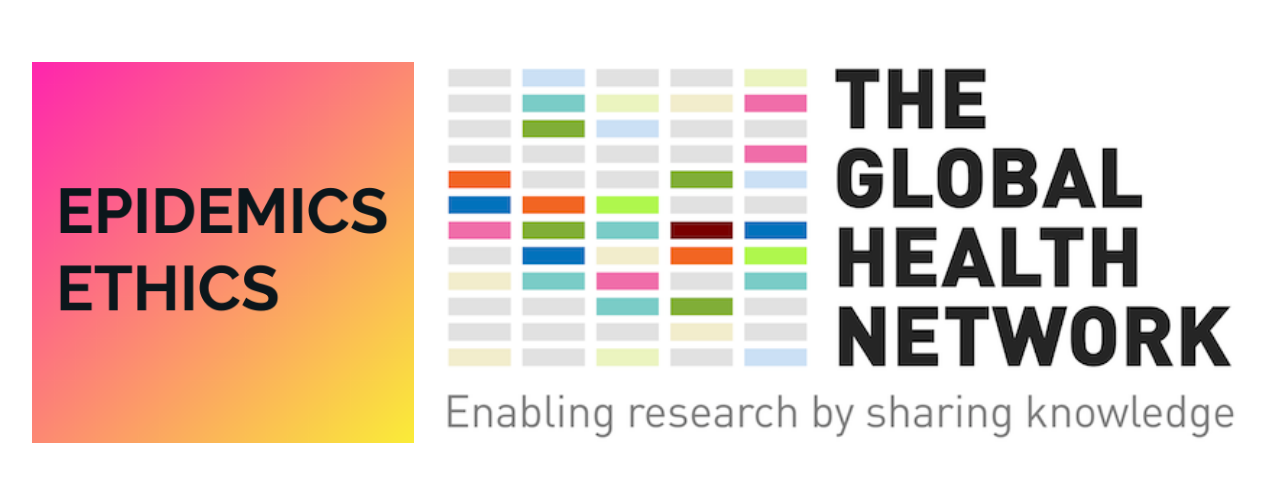
|
Dear colleagues,
?
You're invited to join this upcoming webinar:
?
Lessons from a Zika Network to Covid-19 response and beyond

Date:?19 August 2020
Time:?09.00am Cali, 11.00am Recife, 3.00 pm London, 4.00pm Rotterdam /?Ume?
This session will be hosted in English. For more details about the speaker line-up, please click here
Secure your place and register here!
Best wishes,
The Global Health Network
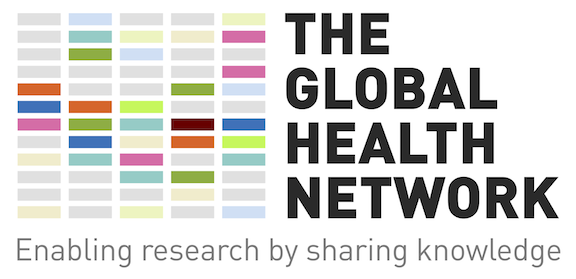
Centre for Tropical Medicine & Global Health | University of? Oxford?
NDM Research Building, Old Road Campus | Roosevelt Drive | Oxford, OX3 7FZ | UK?
The Global Health Network |?www.tghn.org?| @info_TGHN |
|
|||||||||||||||
 Dear colleague, ? What is your professional assessment of current and future COVID-19 public health interventions? The?UK-Public Health Rapid Support Team?is conducting an online survey open to?public health and healthcare professionals?worldwide to understand their professional assessment of current and future COVID-19 interventions, specifically the practicality of, and barriers to, implementation in their context.? Please share your insights so we can help to inform critical decision making and policy to respond to COVID-19. Your participation is important to share learning to inform the COVID-19 response in your country and in others. The survey is available in?English, French and Portuguese?and is anonymous.? Visit: UK-Public Health Rapid Support Team COVID-19 Interventions Survey Survey closes 1 November 2020? ? Get involved - opportunities for researchers Join a COVID-19 Open Working Group Following feedback from our research?workshops?and requests from researchers around the world, we set up 7 open virtual working groups to support research study implementation during this pandemic. The working groups meet and work together to share ideas, form collaborations and seek funding to support rapid research implementation around the globe. If you would like to join a working group please register your interest:? COVID-19 Research Knowledge Hub Working Groups registration form For working groups in Portuguese please register your interest:?Bem-vindo ? pesquisa de registro do grupo de trabalho COVID-19 ? Open Call for COVID-19 research resources in French, Spanish and Portuguese The COVID-19 pandemic is demanding increasingly rapid results from researchers that can contribute to the effective response to the new coronavirus. The COVID-19 Research Implementation and Knowledge Hub has specific regional and language areas, such as?Latin America?and Portuguese-speaking countries response to COVID-19. To further develop these areas we are gathering research resources in French, Spanish and Portuguese for quick and easy access for researchers across the world to conduct high quality research. Do you have research resources in French, Spanish or Portuguese you can share to support colleagues across the world? If yes, please complete the COVID-19 Resource Sharing form (available in English, French, Spanish and Portuguese) and share your resource via email.?? Invitation to SiteFinder to encourage diverse, locally-relevant and locally-led research to facilitate the generation of much-needed evidence during this pandemic We know that it can be hard for research groups to find collaborators for studies and new trials to work. The Global Health Network would like to invite you to join SiteFinder, which is creating a list of research-ready research sites?who have expressed an interest specifically in conducting research into COVID-19. SiteFinder is a free open-access database that allows you to list information about your research group and your experience, interests, facilities and staff. This helps sponsors and collaborators find your site to work with, rather than having to search around for hospital addresses and different websites. For more information or to join visit: SiteFinder COVID-19 Research Sites ? Events Epidemics Ethics Webinar: Ethics of data sharing in health research Chair:?Robert Terry, TDR,?Switzerland Panel:? Professor Phaik Yeong Cheah,?University of Oxford, Thailand Gloria Mason,?National Research Ethics Board, Liberia Dr Oommen John,?The George Institute for Global Health, India 2 November 2020 | 1 - 2.30 pm (London) Register
for Epidemics Ethics
Webinar: Ethics of data sharing in health research
Brain Infections Global Webinar: Neurological Associations of COVID-19:?Neuro COVID-19 in India and encephalitis lethargica Chair:?Professor Tom Solomon,?Chair of Neurological Science, University of Liverpool, Director of the National Institute for Health Research (NIHR) Health Protection Research Unit in Emerging and Zoonotic Infections Speakers:? Professor Priscilla Rupali, Christian Medical College, India Professor Ajith Sivadasan, Christian Medical College, India Dr Michael Zandi,?University College London, United Kingdom Jamie Badenoch, The Journal of Neurology, Neurosurgery, and Psychiatry 5 November 2020 | 1 pm (London) Register for webinar: Neurological Associations of COVID-19:?Neuro COVID-19 in India and encephalitis lethargica ? Resources Video tutorials to support use of Clinical Characterisation Protocol (CCP) The Global Health Network and the International Severe Acute Respiratory and emerging Infection Consortium (ISARIC) launch a series of five video tutorials designed to support research teams and sites with the implementation of the Clinical Characterisation Protocol (CCP). These include:
In collaboration with WHO, ISARIC developed the Clinical Characterisation Protocol (CCP) which is designed for investigating any severe or potentially severe acute infection of public health interest. It is a standardised protocol that enables data and biological samples to be collected rapidly in a globally harmonised manner. The Clinical Characterisation Protocol (CCP) can be used for the rapid, coordinated clinical investigation of confirmed cases of COVID-19. Visit: Clinical Characterisation Protocol (CCP)?? ? New eLearning course: Research in Global Health Emergencies: Ethical Issues This short-specialised course explores some of the central ethical problems that arise when conducting research in global health emergencies, from infectious outbreaks to natural and man-made disasters. The contents are fully based on the peer-reviewed report 'Research in Global Health Emergencies: Ethical Issues', prepared by the Nuffield Council on Bioethics (released January 2020). The course is available in English, French and Portuguese. Research in global Health Emergencies: Ethical Issues English ?tude sur les urgences sanitaires mondiales : probl?mes d'?thique Investigaci?n en emergencias sanitarias globales: cuestiones ?ticas ? New Blood Pharmacokinetic (PK) toolkit provides step by step guide on how to collect, process and transport PK samples in COVID-19 clinical trials While a trial protocol will describe which drug concentration (or pharmacokinetic, PK) samples are to be collected and when, and how such samples will be prepared for analysis, it is important that site staff understand the rationale and best practice for PK sampling to help ensure robust results. This is particularly important for intensive PK sampling schedules. The blood pharmacokinetic toolkit provides a step-by-step guidance for taking blood PK samples from the phlebotomist to processing in an interim processing (e.g. ward) laboratory and onto an analytical laboratory in clinical trials. This toolkit was developed in partnership with the Infectious Diseases Data Observatory, the Collaborating Centre for Optimising Antimalarial Therapy, the University of Cape Town and the Worldwide Antimalarial Resistance Network. Visit: Blood Pharmacokinetics Toolkit ? New Collection of Electrocardiogram?(ECG) Data?toolkit provides comprehensive guidance for collecting the standard 12-lead clinical trial ECG data to support any trial-specific instructions While a clinical trial protocol will describe which electrocardiogram?(ECG) data are to be collected and when, it is important that relevant site staff understand the rationale and best practice for the active collection of such data to ensure robust and relevant results. This toolkit provides comprehensive guidance for collecting the standard 12-lead clinical trial ECG data, to support any trial-specific instructions. It does not include ambulatory (e.g. Holter) ECGs. It also provides a rational for collecting ECG data in COVID-19 clinical trials and trial design considerations.? This toolkit was developed in partnership with the Infectious Diseases Data Observatory, the Collaborating Centre for Optimising Antimalarial Therapy, the University of Cape Town and the Worldwide Antimalarial Resistance Network. Visit: Collection of ECG Data Toolkit ? Resources for your social sciences research during COVID-19 The COVID-19 pandemic has profoundly shifted how social science data is and can be collected and has raised serious questions around participation, ethics and safeguarding in social science research. The Global Health Social Science Knowledge Hub have begun to collate a list of resources to address these challenges, Resource List: Social Science Research during the COVID-19 Pandemic. You are also invited to add your resources and discuss issues around research during COVID-19 in the Global Health Social Science forum. Contribute to the Resources for Social Science Research during COVID-19 Discussion Group ? If you have any questions, ideas or initiatives that you would like to discuss please email us and we will be in touch. ? Many thanks, Nicole Feune de Colombi Scientific Coordinator, The Global Health Network ? P.S. If you know a colleague who would benefit from the resources and opportunities we've shared please forward this to them, thank you! ? ?
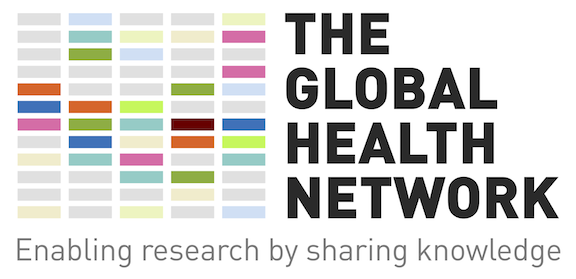 ? ? |
|||||||||||||||
|
?
|
||||||||||||||||||
|
? Dear colleagues, ? You're invited to join an upcoming virtual workshop on: ? Overview of Clinical Trials ??- A Systematic Approach to the Successful Coordination and Project Management of a Clinical Trial ?
 ? This full day *free* virtual workshop is organised by the African Nurses and?Midwives Network (ANMN) in partnership with The?Global Health Network and Global?Research Nurses, Brenda Wright Clinical Trials Services (BWCTS) and the TASK Academy. ? This virtual workshop aims to guide the participant through all the associated?steps for delivering clinical trials; from the development of the study drug, the regulatory requirements, planning,?training, conduct and closing as well as the key roles held by study staff in each stage of this process. Images of an experienced?research site will be shared with appropriate organograms, as well as a discussion regarding the role of the?research nurse.? ? Upon completion of this workshop, you will have an understanding of:
? Speakers: Brenda Wright, (BWCTS) South Africa Karen Cloete, Task Applied Science, South Africa ? 30 July 2020 | 08:30 - 15:30 GMT +1 (London) ? Register Here ? News from across The Global Health Network ? Global research community asks for the right research in the right places for COVID-19 The Global Health Network, the African Academy of Sciences (AAS) and UK Collaborative on Development Research (UKCDR) have published findings of a global study to establish what the remaining research priorities for COVID-19 are and whether they are the same across the globe. A paper reporting these data has just been accepted for publication by BMJ Global (so has been peer reviewed), with a global perspective article on this also reported in Nature. This report calls for the use of research evidence on the optimal implementation of public health interventions for COVID-19 in varied global settings. Read the report here ? New eLearning course: Research in Global Health Emergencies: Ethical Issues This short specialized course explores some of the central ethical problems that arise when conducting research in global health emergencies, from infectious outbreaks to natural and man-made disasters. The contents are fully based on the peer-reviewed report 'Research in Global Health Emergencies: Ethical Issues', prepared by the Nuffield Council on Bioethics (released January 2020). You can access the course here Also available in Spanish ? Global Health Research in Focus Webinar* Understanding the gendered dimensions of COVID-19: Experiences from Brazil, Canada, and the United Kingdom Speakers: Dr Denise Nacif Pimenta, Oswaldo Cruz Foundation, Brazil Dr Clare Wenham, London School of Economics, United Kingdom Dr Julia Smith, Simon Fraser University, Canada Dr Rosemary Morgan, Johns Hopkins Bloomberg School of Public Health, United States 31 July 2020 | 16:00 PM GMT +1 (London) Register Here ? *O webinar ser? conduzido em ingl?s, mas a grava??o contar? com legendas em portugu?s ? Lactahub Webinar Discover PROVIDE - A Training Compendium on Providing Mothers' Own Milk in NICU Settings - with LactaHub during World Breastfeeding Week Please join LactaHub during World Breastfeeding Week to tour the new open access, evidence-based PROVIDE Training Compendium, produced by Rush University Medical Center with support from the Family Larsson-Rosenquist Foundation to help healthcare professionals bring lifesaving Mothers' Own Milk (MOM) to hospitalised infants. Speakers: Dr Paula P. Meier, PhD, RN, PROVIDE Training Compendium creator Professor of Pediatrics and Nursing, Rush University Medical Center Dr Sushma Nangia, MD, DM, Director Professor and Head, Department of Neonatology, Lady Hardinge Medical College and Kalawati Saran Children's Hospital, New Delhi, India Kay Kutschkau, LactaHub Janet Prince, RM, IBCLC, Head of Relationship Management, Family Larsson-Rosenquist Foundation 6 August 2020 | 14:00 - 15:30 PM GMT +1 (London) Register Here ? Brain Infections Global Webinar Neurological disorders associated with COVID-19: Neuropsychiatric and neurocognitive aspects in Australia and America Speakers: Dr Lucette Cysique & Prof Bruce J. Brew,?St Vincent's Hospital Applied Medical Research Centre, Australia 20 August 2020 | 13:00 PM GMT +1 (London) Register Here  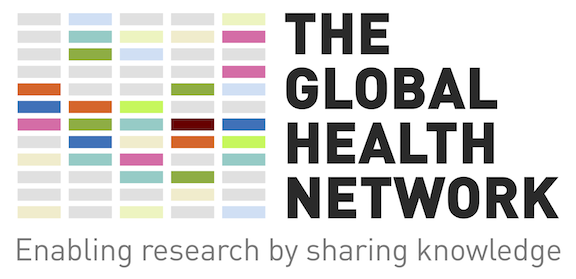 ? ? |
||||||||||||||||||
|
?
|
||||||||||||||||||
 |
||||||||||||||||||
|
The Trials Methodology Research Partnership Trials methodology research has improved the design, conduct and analysis of clinical trials for the benefit of participants, researchers, and others who use the evidence to make decisions about healthcare. The Trials Methodology Research Partnership (TMRP) brings together a number of networks, institutions and partners working in this area. Topic-specific working groups specialise in areas relevant to trials methodology: ?
If you're interested in learning more about, or joining, these groups please visit The Trials Methodology Research Partnership. This Global Health Working Group is part of the TMRP and aims to focus on those working in low and middle-income countries (LMICs), highlighting relevant information about training, events, and news on the Global Health Methodology Research Knowledge Hub. We also help manage TMRP pump-priming grants for LMIC clinical trials methodology research projects. Seven such projects have been awarded and are ongoing in Uganda, Kenya, Tanzania, India, Thailand and South Africa in a range of interesting topics involving pilot studies, randomisation, community engagement, informed consent, data reuse and cultural competence in trial design and conduct. These will be featured in the next TMRP webinar listed below. Upcoming Events ? TMRP Webinar Series - Global Health Trials Methodology Research We are pleased to announce that several of the TMRP-funded pump priming projects, all projects conducted in low-resource settings, will be featured in the next TMRP webinar. This webinar is one of a series hosted by the UK Trial Managers' Network. We look forward to welcoming you. Monday 19 October | 13:00 (GMT+1) Register for the webinar: TMRP webinar series - Global Health Trials Methodology Research ? Comet Webinar Series The COMET webinar series started on 8th-9th October 2020, with a third webinar on 20th October about including patients in Core Outcome Sets development. Tuesday 20 October | 14:00-14:45 BST Find out more about the Comet 2020 webinar series Previous Events ? A Global Health Trials Methodological Research Agenda Anna Rosala-Hallas presented a webinar on her work to help define a global health trials methodological research agenda. Webinar: A Global Health Trials Methodological Research Agenda COVID-19 Research Implementation and Knowledge Hub Open Workshops The Global Health Network is hosting regular online interactive workshops to facilitate learning and discussion around the important research questions that are arising during the COVID-19 pandemic. Watch previous COVID-19 open workshop recordings? Share funding, collaboration and networking opportunities? If you know of any funding opportunities specific to clinical trial/research methodology research and relevant to low and middle-income countries please let us know so we can share this on the Global Health Methodology Research Knowledge Hub.? If you have ideas for your own methodology work where you are seeking potential collaborators or advice, please email Elizabeth Allen: elizabeth.allen@uct.ac.za Contribute to the Estimating Site Performance-2 project (ESP2) Are you setting up new trial recruitment sites? If you are, the Estimating Site Performance-2 project (ESP2) needs you to make predictions about site recruitment after considering eight 'red flags' identified in a pilot study. Let's get the numbers of trials in low and middle-income countries up on this important project. Visit: Estimating Site Performance-2 project (ESP2) Featured Resources COVID-19 Research Priorities Identified by the Global Research Community The Global Health Network, in collaboration with the African Academy of Sciences and the UK Collaborative on Development Research, have published the report COVID-19 Research Priorities Identified by the Global Research Community highlighting where research focus is needed across the globe to tackle COVID-19 and future outbreaks. eLearning - The Practice and Ethics of Participatory Visual Methods for Community Engagement in Public Health and Health Science This free online course provides guidelines on the practice and ethics of participatory visual methods (PVM) with emphasis on their use in low and middle-income countries for community and public engagement in health and health science. Access the course: The Practice and Ethics of Participatory Visual Methods for Community Engagement in Public Health and Health Science Trials Methodology Research Partnership Publications The Trials Methodology Research Partnership and its predecessor the Hubs for Trials Methodology Research resources are available to access. These were produced by network projects and selected external groups. They cover a range of topics including; guidelines to optimise participant recruitment, use of statistical monitoring in trials, approaches for reducing trials costs, biomarker-guided adaptive trial designs, there's something to suit everyone working in trials. Access the Trials Methodology Research Partnership Publications A Practical Adaptive & Novel Designs and Analysis (PANDA) Toolkit PANDA is a resource for those keen to learn about adaptive designs, their practical application, potential benefits and limitations. Visit the Practical Adaptive & Novel Designs and Analysis (PANDA) website ? Best wishes Liz, Duolao and Arancha? Global Health Methodology Research Knowledge Hub Team Elizabeth Allen, Division of Clinical Pharmacology, University of Cape Town Elizabeth.allen@uct.ac.za Duolao Wang, Department of Clinical Sciences, Liverpool School of Tropical Medicine Duolao.Wang@lstmed.ac.uk Arancha De La Horra Gozalo, The Global Health Network, University of Oxford arancha.delahorra@ndm.ox.ac.uk  ? ? |
||||||||||||||||||
|
?
?
|
|||||||||||||||
 |
|||||||||||||||
|
Dear colleague, On behalf of the The Global Health Network COVID-19 Ethics and Community Engagement Working Group coordination team, we warmly invite you to participate in the following closed-group virtual workshop: Ethics review preparedness during COVID-19: challenges and lessons learned A surge in research activities focusing on Novel COVID-19 has left the ethics review bodies overwhelmed, working in difficult situations and facing the challenge of reviewing the studies with limited evidence of the safety and efficacy of interventions proposed. In countries with decentralized and underdeveloped ethical review systems, the review process, conducted by diverse ethics review bodies across different regions, remains variable and inconsistent, resulting in inefficiency and duplication of efforts. This workshop aims to examine the ethics review process, identifying the variations and challenges that present. This session seeks to provide an opportunity for ethics review bodies or institutional review boards to share and discuss the problems and potential solutions afforded by experience so far, in an effort to ensure a more coordinated and efficient review system. This 2-day workshop will take place on the following days: Tuesday 10 November Friday 13 November Time: 11:00 to 14:00 (London, UK) The programme has been carefully designed to afford as much opportunity for participant interaction and networking, and to build on the discussions from day 1, so you're advised to attend both sessions. For more information and details of the programme, please visit: Workshop: Ethics review preparedness during COVID-19: challenges and lessons learned To secure a place, please complete your registration as soon as possible and we will contact you with further details soon, including a calendar invitation to confirm your place at the workshop. Register for Workshop: Workshop: Ethics review preparedness during COVID-19: challenges and lessons learned This event is by invitation only and we are limiting numbers to maximise the value of the workshop and provide the best experience for all. Many thanks, Nicole Feune de Colombi Scientific Coordinator, The Global Health Network ? ? 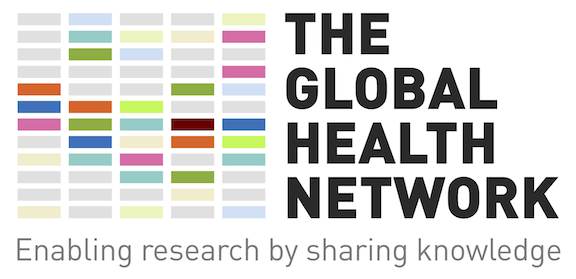
? ? |
|||||||||||||||
|
?
?
Dear Colleague,
Following our recent review of Neurological
associations of COVID-19, in-press with the Lancet Neurology (see attached), we are writing to invite you to join the COVID
Neuro Network and contribute data to an individual patient data meta-analysis, under discussion with the journal. This is because
you have signed up to the of Brain Infections Global knowledge hub.
The COVID Neuro Network,
led by Prof. Tom Solomon, Professor
of Neurology at the University of Liverpool,
is analysing pooled individual patient data to:
i) characterise the spectrum of neurological associations
of COVID-19
ii) determine factors that impact on outcome in cases
with neurological features (including admission to intensive care, mortality, and neurological sequelae)
iii) look at risk factors for development of neurological
disease in COVID-19, where possible
The findings from this new individual patient data meta-analysis will shape our understanding of COVID-19 and be used to inform clinicians, researchers and policymakers globally. We aim to publish our findings
rapidly. We are happy to include data previously published, or new unpublished data.
To register your interest in joining this exciting work, please sign up here.
Once you've expressed interest, we will send you further details about data sharing arrangements.
For each dataset included in the meta-analysis, we are including the lead contributor as a named co-author in the resulting publication.
In addition, we are holding a Zoom meeting at TODAY, WEDENSDAY (APOLOGIES FOR THE SHORT NOTICE)
13:00 GMT on the 17th of June 2020 at this address, which
you may wish to join - if available - to find out more about our work and discuss the study.
Please do share this email with other potential collaborators who you feel may be interested in joining this network. You may also like to look at some of our COVID-Neuro resources
at the bottom of the email.
Contact Dr. Suzannah Lant (S.Lant@Liverpool.ac.uk) if you have any questions.
We look forward to hearing from you,
Kind Regards,
Professor Tom Solomon
Chair of Neurological Sciences & Director of
the National Institute for Health Research (NIHR) Health protection Research Unit in Emerging and Zoonotic Infections
University of Liverpool
Dr. Suzannah Lant
Clinical Research Fellow
University of Liverpool
Additional COVID-19 Neuro resources:
? A resource with
daily updates of neuro publications
? Free to download Case
Record Forms, and Case Definitions for all the major neurological syndromes
? A UK wide registry of
Neuropsychiatric patients (report under review with Lancet Neurology)
? Covid
Neuro Webinars
|
||||||||||||||||||
| ||||||||||||||||||
|
? 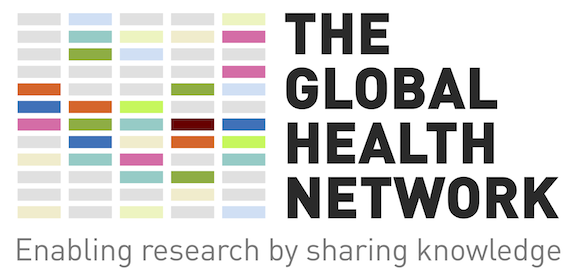 ? ?? |
||||||||||||||||||
|
?
Dear Colleague,
As someone who has shown interest in our current and previous work (e.g. Brain Infections Global hub and/or the COVID-Neuro Network) we thought you would like to know about the upcoming Liverpool Neurological Infectious Disease Course (NeuroID Virtual).
Ever struggled with a patient with a brain infection? Then the NeuroID course is for you!
The Liverpool Neurological Diseases Course (NeuroID) has taken place every year in Liverpool since 2007, and has now trained more than 1000 delegates from 40 countries. Check out the course video on this web page. Although we could not deliver the course earlier in the year, because of the pandemic, we were determined to offer something.
NeuroID Virtual will be a free online course on 20 & 21 January 2021 (10:00 - 15:00 GMT both days).
The course is a must for any clinicians of any specialty or grade who sees patients with neurological infectious diseases. It covers the common and important neurological infections, as well as some rarer conditions, with the emphasis very much on practical approaches to the problems encountered on wards and in clinic. Delivered by experts in the field, the course, has been oversubscribed every year. All details for the virtual course will be available via our website shortly. The course will be run live, but talks will also be recorded in case your diary does not allow you to attend each session
In the meantime, registration is now open here. Places are limited so register now to avoid disappointment.
We look forward to seeing you in January
Best wishes,
Professor Tom Solomon and the NeuroID Team
Institute of Infection, Veterinary & Ecological Sciences
Ronald Ross Building
8 West Derby Street
Liverpool
L69 7BE
www.liverpool.ac.uk/neuroidcourse
www.facebook.com/LiverpoolNeuroID
Access the NEUROWEBINAR Home Page and Archives: http://listserv.liv.ac.uk/cgi-bin/wa?A0=NEUROWEBINAR
Unsubscribe from the NEUROWEBINAR List: http://listserv.liv.ac.uk/cgi-bin/wa?SUBED1=NEUROWEBINAR&A=1
########################################################################
|
|
Dear WEPHREN member,
On the 18th July, WEPHREN will celebrate its 3rd anniversary.
With over 1300 registered members, we would like to continue to raise the profile of WEPHREN and have commissioned a person with lived experience of prison to design a new logo for WEPHREN. We would like you to help us choose which should
be the winning design.
Please see the attached logo designs and use the voting buttons at the top of this email to cast your vote by 31st July.
Our designer has given us the following insights into his design process which might help you make your decision:
“1. And 2. An ECG heartbeat monitor representing health, in the shape of a W, the first letter of the WEPHREN acronym. These are set against a globe, representing the worldwide scope of the organisation,
with barbed wire running down it to encapsulate the very specific focus on prison health. Without some kind of prison related motif, the logo loses its specificity, becoming a generic logo for any health organisation.
3. and 4. The third and fourth logos draw on the idea of participation, through handprints. The health motif is this time represented by a defibrillator icon, emblazoned with a chain to encapsulate
the prison specific element of WEPHREN.
5. The fifth and final logo makes prisons the focus, by showing the heart breaking through bars.”

Thank you for supporting us this year, we hope you have found the resources on WEPHREN helpful. Do get in contact with us if you have any ideas for future developments.
wephren@phe.gov.uk
Pesquisa sobre Sa?de Global Em Foco -?Pr?ximas Palestra: Compreendendo as dimens?es de g?nero da COVID-19
As pandemias, incluindo a COVID-19, n?o s?o neutras em termos de g?nero.
Pandemics, including Covid-19 are not gender neutral.
Voc? j? pensou como essa pandemia est? afetando todos os
g?neros de foram diferente??As evid?ncias mostram que a pandemia da
COVID-19 est? afetando deformas diferentes os homens, mulheres, e pessoas de
outros g?neros - tanto em termos de efeitos prim?rios imediatos quanto de
efeitos secund?rios,?mais duradouros. Este webinar ir? discutir as
dimens?es de g?nero da COVID-19 em tr?s contextos de pa?s, com base nas
evid?ncias de dois projetos?sobre g?nero COVID que trabalham
transversalmente em nove contextos.?Esta palestra est? sendo organizada em
parceria com a?Fiocruz.
O webinar ser? conduzido em ingl?s, mas a grava??o contar? com legendas em
portugu?s.?
Have you ever thought about how this pandemic is affecting all genders differently??Evidence shows that the current COVID-19 pandemic is differentially affecting men, women, and people of other genders - both in terms of immediate primary effects and more long term secondary effects. Join Denise Nacif Pimenta, Clare Wenham, Julia Smith and Rosemary Morgan to discuss the??gendered dimensions of COVID-19 in three country contexts, drawing on evidence from two gender and COVID projects working across nine contexts.?This lecture is hosted in partnership with?Fiocruz.??
Please note that if oversubscribed you can join this webinar live on Facebook - search 'The Global Health Network'.
Global Health Research In Focus (Pesquisa em Sa?de Global em Foco)?? um evento bimensal organizado pela The Global Health Network (Rede de Sa?de Global), que traz painelistas reconhecidos no campo da pesquisa em sa?de global. Esta s?rie engloga?diferentes disciplinas de pesquisa, regi?es e ?reas terap?uticas, e celebra avan?os e realiza??es rumo a uma pesquisa em sa?de mais?r?pida,?prof?cua e melhor.
Global Health Research In Focus?is a bi-monthly public lecture brought to you by The Global Health Network, featuring prominent speakers in global health research. This series spans research disciplines, regions, and therapeutic areas, and celebrates advances and achievements towards more, faster and better research for health.?
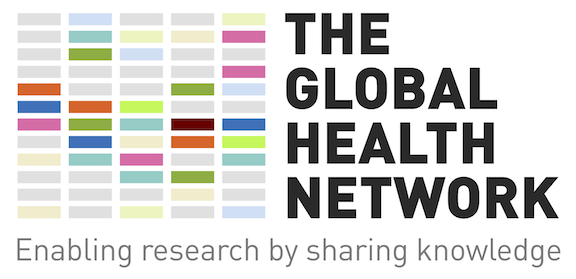
Centre for Tropical Medicine & Global Health | University of? Oxford?
NDM Research Building, Old Road Campus | Roosevelt Drive | Oxford, OX3 7FZ | UK
Dear Colleague,
Register here for the next COVID-Neuro Webinar, featuring Professor Elizabeta Mukaetova-Ladinska from the University of Leicester and Professor Kameshwar Prasad from All India Institute of Medical Sciences:
(Dial in details will be circulated following your registration)
Prof Tom Solomon - Chair
Prof Tom Solomon is Director of the National Institute for Health Research Health Protection Research Unit in Emerging and Zoonotic Infections, Head of the Brain
Infections Group, Professor of Neurological Science, and Honorary Consultant Neurologist, Walton Centre NHS Foundation Trust and Royal Liverpool University Hospital.
Professor Elizabeta Mukaetova-Ladinska
Prof Elizabeta Mukaetova-Ladinska is a Professor
in Old Age Psychiatry (University of Leicester) and an honorary Consultant in Old Age Psychiatry (Leicestershire Partnership NHS Trust, Leicester, UK). Her research focuses on blood biomarkers for dementia, neurofeedback treatment to prevent and treat early
dementias, and characterisation of molecular substrates underlying dementia. She is also involved in establishing a dementia research specifically targeting the BAME population in East Midlands in the UK, and defining the role of Artificial Intelligence (AI)
art in care of an ageing society.
Professor Kameshwar Prasad
Prof
Kameshwar Prasad is a professor of neurology at the All India Institute of Medical Sciences (AIIMS), New Delhi. He trained in Medicine and Neurology at AIIMS and continued as a faculty. He has also obtained an MSc in Clinical Epidemiology and Health Research
Methodology, McMaster University, Canada. He has more than 37 years of experience in neurology practice, education and research, and has published more than 320 papers in peer-reviewed journals. His areas of research interest include Neuro-infections, Stroke,
Evidence-Based Medicine, Clinical Trials, and Meta-Analysis, Medical Education, & Clinical Epidemiology. He is currently the PI of a large population-based cohort of middle-aged and older adults in and near Delhi. He is a contributing Editor of the Cochrane
Stroke Group and is a member of the International Editorial Advisory Board of BMJ. He is a fellow of National Academy of Medical Sciences.
Additional COVID-19 Neuro resources:
With thanks,
Tom Solomon
(PS: You are receiving this invitation because you signed up for the Brain Infections Global hub and/or the COVID-Neuro Network. We are hosting our next webinar on 10th September at 13:00 pm GMT+1 (London))
-----------------------
Professor Tom Solomon, FRCP PhD
Chair, Neurological Science and Director, NIHR Health Protection Research Unit in Emerging and Zoonotic Infections, University of Liverpool.
Hon Consultant Neurologist, Walton Centre NHS Foundation Trust.
Assistant: Clare Fotheringham; Email clare.fotheringham@liverpool.ac.uk; Tel +44 151 795 7577
Zoom: https://us02web.zoom.us/j/5640427808
@RunningMadProf
----------------
Additional COVID-19 Neuro resources:
----------------
Friday, 31 July
16:00 GMT+1 (London) 12:00 GMT - 3 (Brasil)
Register here
(Please note that if oversubscribed you can join this webinar live on Facebook)
Global Health Research In Focus is a bi-monthly public lecture brought to you by The Global Health Network, featuring prominent speakers in global health research. This series spans research disciplines, regions, and therapeutic areas, and celebrates advances and achievements towards more, faster and better research for health.
Fl?via Bueno
Fiocruz Hub Coordinator - The Global Health Network
https://fiocruz.tghn.org/
|
|
Dear WEPHREN member,
Please see the attached flyer for a free online course on Managing TB Outbreaks in Prisons, starting on 6th July. Registration is now open.
For more information see the WEPHREN website
https://wephren.tghn.org/e-learning-prison-health/

Dear Colleague, The?Public Health Emergency Preparedness and Response Ethics Network?(PHEPREN) and the?Global Forum on Bioethics in Research?(GFBR) are pleased to announce the first in a series of joint, virtual seminars, taking place on Monday 2 November, 1pm-2.30pm GMT (London) on the theme "Ethics of data sharing in health research". To register visit:?https://epidemicethics.tghn.org/seminars/.? Data sharing has the potential to increase scientific efficiency by maximising the availability and utility of data, and can be critical to generating knowledge during a public health emergency. Research funders and journals are increasingly promoting open sharing to improve the transparency and utility of research, with the ultimate aim of improving health. However, the research community are also concerned about the harms of data sharing, such as the potential to exacerbate existing inequalities, particularly if data sharing benefits only researchers from well-resourced institutions, leaving researchers in low-resourced settings worse off. The?2018?GFBR?focused on this important topic. This?seminar will examine?the GFBR meeting conclusions?in the context of the current COVID-19 research response, where the pandemic has created more tension to the issues. We will explore how research practice and policy has progressed since this topic was discussed at GFBR, and what has changed - and should change - in light of the COVID-19 pandemic.? Chair:?Robert Terry, TDR,?Switzerland? Panel:?Phaik Yeong Cheah,?University of Oxford, Thailand? Gloria Mason,?National Research Ethics Board, Liberia? Oommen John, The George Institute for Global Health, India? ? The following questions were discussed at GFBR and will form the basis of the seminar's panel discussion. The full GFBR meeting report is available?at this link. Seminar attendees are invited to submit questions in advance of the seminar when they?register?or by?email, or during the live discussion. The seminar is not presentation based, but is discussion based.? ? What are the possible benefits and harms associated with data sharing??? Why is the sharing of data being promoted and what is 'good' about such sharing? What are the perverse effects of data sharing policies e.g. if researchers in low resource settings are compelled under funding agreements to immediately share their data, is this equitable? How do we share for maximum benefit and least harm??? ? What do we need to do to ensure that data sharing policies and processes are respectful of participants and communities and what are the limits and tensions?? How should policies and processes to promote respectful sharing be developed, and who should contribute to their development??How should we respond to differing (cultural) views about what is required? Are there circumstances - such as the current COVID-19 pandemic - where procedures that have been proposed as necessary to promote respect (e.g. ensuring consent), are arguably inappropriate, unfeasible or burdensome?? ? What are the key features of a governance framework for sharing patient data for health research??Are some features distinct for research during public health emergencies?? How can we create a governance mechanism that means patient data can be shared - especially where there is no individual consent for research use? What is appropriate and required (e.g. data access committees, security systems etc).? ? What policy changes are needed to underpin a governance framework that enables responsible sharing of health data?? What?are?the ethics/regulatory reviews and/or training programmes that need to be put in place? What expertise and resource commitments are required e.g. from funders and governments? What role does the public or other stakeholders have (if any)? What does capacity building mean in this context? How should (and could) international forums and networks facilitate these changes?? We hope you can join us on Monday 2 November! Please do share this notice and help us spread the word by re-tweeting?this post. The two other seminars in this series are:
Registration is already open and more details will be available soon at:?https://epidemicethics.tghn.org/seminars/ All best wishes, Adrienne
on behalf of the PHEPREN team 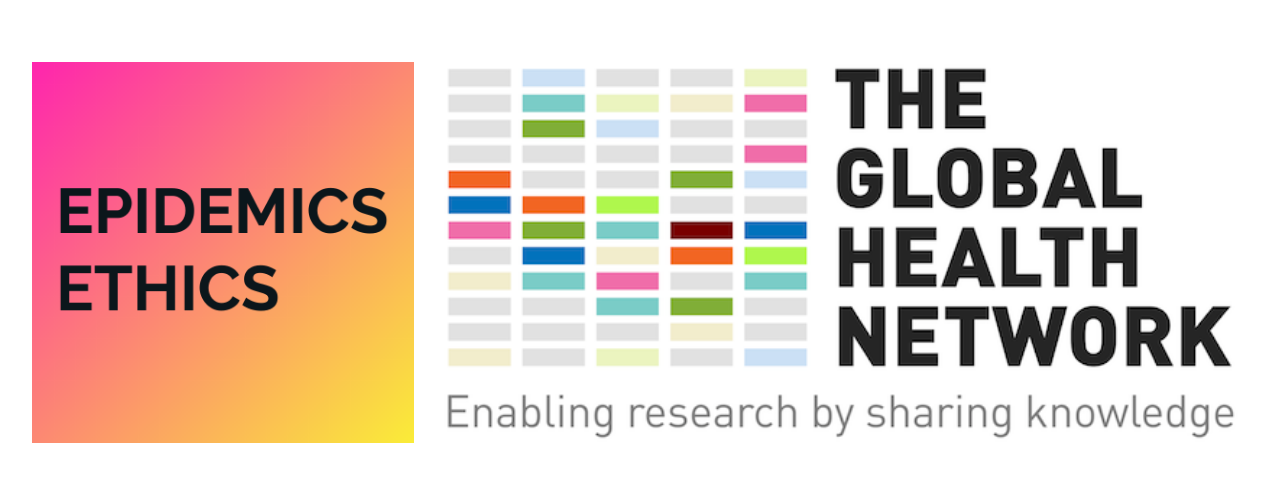 ?
|
?
|
|
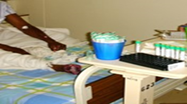 ?
?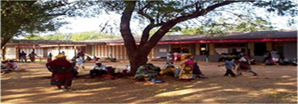 ?
?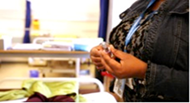
Dear Colleagues,
?
We would like to introduce the new Global Health working group of the Trials Methodology Research Partnership (TMRP) and update you on recent activities and how we intend moving forward.
?
Rationale for the TMRP and this working group
The TMRP brings together a number of networks, institutions and partners working in trials and trials methodology research. Topic-specific working groups specialise in areas relevant to trial methodology. You are welcome to contact these groups directly to enquire about joining their own member groups:
?
Here are some useful examples of Trials Methodology Research
?
Our own new Global Health Working Group was launched so that researchers in low and middle-income countries (LMICs) may both benefit from and contribute to ongoing developments in clinical trials methodology research. We aim to
1) Raise awareness of the field and scope of clinical trial methodology research to those in LMICs
2) Signpost them to the other topic-specific Working Groups of the TMRP
3) Further increase the capacity for trial methodology research in LMICs through freely accessible information on a dedicated site
4) Respond to queries from those in LMICs wanting guidance on methods, potential collaborators and training opportunities/events
5) Manage small pump-priming grants for LMIC clinical trials methodology research projects
?
Ideas for taking the working group forward
A core group of people with experience in trials methodology research, and/or trial networks in LMICs will shortly start to guide the working group activities, but we would like everyone to feel free to suggest the direction we could take depending on your needs and wants. Ideally, we could then pull together as a community-of-practice to achieve these. You can contact us via the emails below, or through our dedicated page where we would like to generate discussion groups. Please drop us an email if you would like to start a discussion.
?
News
Pump-priming awards: we are delighted with the response to the recent call for applications for these small awards intended to boost small and proof of principle research in LMICs. Congratulations to the 7 successful applicants. Please see this page for more information about the outcome - we will also work towards supporting some of the unsuccessful applicants where we can over the next year.
?
Events/training etc.
Many routine face-to-face events/conferences are being postponed or cancelled due to COVID-19 so it is difficult to provide a comprehensive update at this time. However, we'd like to bring these online events and resources to your attention:
?
Funding, collaborations and networking
We are going to start collating funding opportunities specific to clinical trial/research methodology research and relevant to LMICs for presentation on our site - please do send us any such funding so we can share with everyone. As our group progresses we hope that the networking will allow for collaborative work.
?
Featured LMIC-relevant articles
Ethics of alternative trial designs and methods in low-resource settings Parts 1 and 2
?
Finally, please forward this email to your colleagues that may be interested in joining and follow us on Twitter @GHWG_TMRP ?
?
Best wishes
Liz, Duolao and Arancha?
?
Elizabeth Allen, Division of Clinical Pharmacology, University of Cape Town Elizabeth.allen@uct.ac.za
Duolao Wang, Department of Clinical Sciences, Liverpool School of Tropical Medicine Duolao.Wang@lstmed.ac.uk
Arancha De La Horra Gozalo, The Global Health Network, University of Oxford arancha.delahorra@ndm.ox.ac.uk
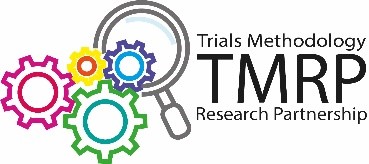 ? ??
? ??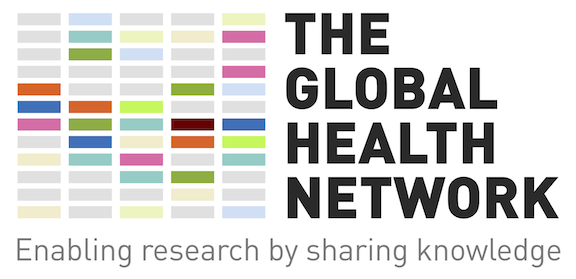

Centre for Tropical Medicine & Global Health | University of? Oxford?
NDM Research Building, Old Road Campus | Roosevelt Drive | Oxford, OX3 7FZ | UK?
The Global Health Network |?www.tghn.org?| @info_TGHN | +44 (0) 1865 612960?
Dear WEPHREN member,
On the 18th July, WEPHREN will celebrate its 3rd anniversary.
With over 1300 registered members, we would like to continue to raise the profile of WEPHREN and have commissioned a person with lived experience of prison to design a new logo for WEPHREN. We would like you to help us choose which should
be the winning design.
Please see the attached logo designs and use the voting buttons at the top of this email or respond with the number of your choice to cast your vote by 31st
July .
Our designer has given us the following insights into his design process which might help you make your decision:
“1. And 2. An ECG heartbeat monitor representing health, in the shape of a W, the first letter of the WEPHREN acronym. These are set against a globe, representing the worldwide scope of the organisation,
with barbed wire running down it to encapsulate the very specific focus on prison health. Without some kind of prison related motif, the logo loses its specificity, becoming a generic logo for any health organisation.
3. and 4. The third and fourth logos draw on the idea of participation, through handprints. The health motif is this time represented by a defibrillator icon, emblazoned with a chain to encapsulate
the prison specific element of WEPHREN.
5. The fifth and final logo makes prisons the focus, by showing the heart breaking through bars.”

Thank you for supporting us this year, we hope you have found the resources on WEPHREN helpful. Do get in contact with us if you have any ideas for future developments.
wephren@phe.gov.uk
Dear Colleague,
Register here for the next COVID-Neuro Webinar, featuring Prof Alla Guekht from the Moscow Research and Clinical Center for Neuropsychiatry and Prof Tom?s Segura from the Complejo Hospitalario Universitario de Albacete in Spain:
A Russian perspective on COVID-neuro and data from the ALBACOVID registry (12th January 2021, 13:00 GMT/UTC+0)
(Dial in details will be circulated following your registration)
Prof Tom Solomon - Chair
Prof Tom Solomon is Director of the National Institute for Health Research Health Protection Research Unit in Emerging and Zoonotic Infections, Head of the Brain Infections Group, Professor of Neurological
Science, and Honorary Consultant Neurologist, Walton Centre NHS Foundation Trust and Royal Liverpool University Hospital.
Prof Alla Guekht is the Director of the Moscow Research and Clinical Center for Neuropsychiatry, professor of Neurology at the Russian
National Research Medical University, supervising the neurological clinic in the multidisciplinary hospital in Moscow. Her main areas of research are epilepsy, post-stroke cognitive impairment, restoration after stroke, and neuroepidemiology.
Prof. Dr. Tom?s Segura is the Head of the Neurology Department, Complejo Hospitalario Universitario de Albacete, Spain and one of the main co-investigators of the ALBACOVID study.
The literature digest from @Neuropsychcovid for this month will be presented by JNNP Blogger Jia Song and the WHO Regional Clinical Exchange will introduce their new virtual case discussions.
*** Future webinars ***
February 17 2021 | 1-2pm (UK) | Register now
March 16 2021 | 1-2pm (UK) | Register now
April 20 2021 | 1-2pm (UK) | Register now
Additional COVID-19 Neuro resources:
With thanks,
Tom Solomon
(PS: You are receiving this invitation because you signed up for the Brain Infections Global hub and/or the COVID-Neuro Network. We are hosting our next webinar on 12th January at 13:00 pm GMT/UTC+0 (London))
-----------------------
Professor Tom Solomon, FRCP PhD
Chair, Neurological Science and Director, NIHR Health Protection Research Unit in Emerging and Zoonotic Infections, University of Liverpool.
Hon Consultant Neurologist, Walton Centre NHS Foundation Trust.
Assistant: Clare Fotheringham; Email clare.fotheringham@liverpool.ac.uk; Tel
+44 151 795 7577
Zoom: https://us02web.zoom.us/j/5640427808
@RunningMadProf
----------------
You are receiving this communication as someone who has previously consented to receive event related emails from Professor Tom Solomon. If this is not the case, or you wish to stop receiving these emails, please email clare.fotheringham@liverpool.ac.uk at any time. We are committed to maintaining your privacy and you can view our data protection policy
Access the NEUROWEBINAR Home Page and Archives: http://listserv.liv.ac.uk/cgi-bin/wa?A0=NEUROWEBINAR
Unsubscribe from the NEUROWEBINAR List: http://listserv.liv.ac.uk/cgi-bin/wa?SUBED1=NEUROWEBINAR&A=1
########################################################################
| Data Name | Data Type | Options |
|---|---|---|
| Name* | ||
| Password | ||
| City | ||
| Job category* | --------- | |
| AKU-SONAM EA C.A.R.E. | I am interested in the following GHT sites: | |
| ALERRT | AKU-SONAM EA C.A.R.E. | |
| Antimicrobial Resistance (AMR) | ALERRT | |
| Brain Infections Global | Antimicrobial Resistance (AMR) | |
| CANTAM | Brain Infections Global | |
| CHAIN Network | CANTAM | |
| COAST | CHAIN Network | |
| CONSISE | COAST | |
| Coronavirus | CONSISE | |
| East African Consortium for Clinical Research | Coronavirus | |
| EDCTP Knowledge Hub | East African Consortium for Clinical Research | |
| ELSI 2.0 | EDCTP Knowledge Hub | |
| EPIDEMIC ETHICS | ELSI 2.0 | |
| Epidemic Preparedness Innovations | EPIDEMIC ETHICS | |
| ERGO | Epidemic Preparedness Innovations | |
| Fiocruz | ERGO | |
| Global Birth Defects | Fiocruz | |
| Global Dengue Lab | Global Birth Defects | |
| Global Health Bioethics, Research Ethics & Review | Global Dengue Lab | |
| Global Health Data Management | Global Health Bioethics, Research Ethics & Review | |
| Global Health Diagnostics | Global Health Data Management | |
| Global Health Laboratories | Global Health Diagnostics | |
| Global Health Social Science | Global Health Laboratories | |
| Global Health Training Centre | Global Health Social Science | |
| Global Mother Child Research | Global Health Training Centre | |
| Global Musculoskeletal | Global Mother Child Research | |
| Global Pharmacovigilance | Global Musculoskeletal | |
| Global Health Methodology Research | Global Pharmacovigilance | |
| Global Research Nurses | Global Health Methodology Research | |
| Human Infection Studies | Global Research Nurses | |
| INTERGROWTH-21?? | Human Infection Studies | |
| ISARIC | INTERGROWTH-21?? | |
| Mesh | ISARIC | |
| PANDORA | Mesh | |
| PediCAP | PANDORA | |
| PRECISE Community | PediCAP | |
| Global Pregnancy CoLab | PRECISE Community | |
| Process Map | Global Pregnancy CoLab | |
| Research Capacity Network | Process Map | |
| Site Finder | Research Capacity Network | |
| TESA | Site Finder | |
| TREAD (The Research Ethics Application Database) | TESA | |
| WANETAM | TREAD (The Research Ethics Application Database) | |
| WEPHREN | WANETAM | |
| Worldwide Antimalarial Resistance Network (WWARN) | WEPHREN | |
| Zika Infection | Worldwide Antimalarial Resistance Network (WWARN) | |
| ZIKAlliance | Zika Infection | |
| ZikaPLAN | ZIKAlliance |



 Arts and Entertainment
Arts and Entertainment Business and Industry
Business and Industry Computer and Electronics
Computer and Electronics Games
Games Health
Health Internet and Telecom
Internet and Telecom Shopping
Shopping Sports
Sports Travel
Travel More
More